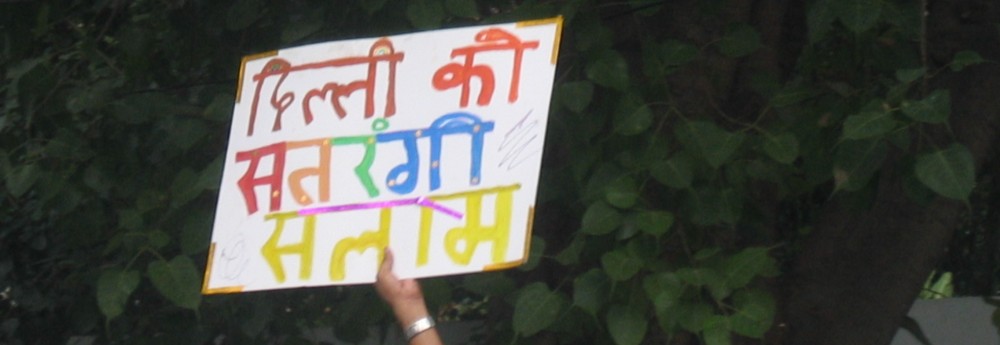15 July 2009
From: Vikram Seth, author; Swami Agnivesh; Soli Sorabjee, former Attorney-General; Aditi Desai, sociologist; Nitin Desai, former UN Under-Secretary General; Captain Lakshmi Sahgal, freedom fighter, Padma Vibhushan; Siddharth Dube, author
To the Government of India and All Citizens,
It has been 3 years since we launched an Open Letter seeking an end to the colonial law that criminalized romantic love and private, consensual sexual acts between adults of the same sex. Over 150 of India’s most eminent women and men became signatories to that letter. Nobel laureate Amartya Sen joined us with a complementary public statement, calling the law a “colonial era monstrosity” and emphasizing that “the criminalization of gay behaviour goes not only against fundamental human rights…but it also works sharply against the enhancement of human freedoms in terms of which the progress of human civilization can be judged.”
Each of us lead signatories to the Open Letter has welcomed the Delhi High Court judgment of 2 July 2009, reading down Section 377 of the Indian Penal Code to decriminalize private, consensual sexual acts between adults. We applaud the Delhi High Court judgment in terms of its wisdom, balance and clarity; in terms of its clear-eyed human sympathy; in terms of its emphasis on human dignity; in terms of its wide-ranging view of sociology, history, psychology and philosophy as well, of course, at its core, of law; in terms of its combination of legal theory and empirical argument; in terms of its international sweep, of surveying and considering the judgments of eminent jurists from around the world, while remaining absolutely grounded on Indian constitutional precedents and principles. With this judgment, India has moved many steps closer to the national goal of becoming a just, pluralistic and democratic society.
We have been delighted to see that people all over India have welcomed the judgment as a historic moment for principles of equality and human dignity, a celebration of diversity, a matter of pride for all Indians, not just sexual minorities.
We note with regret, however, that those who oppose the judgment have too often done so on specious, bigoted grounds. Overlooking Dr Ambedkar’s vision of Constitutional morality and Pandit Nehru’s vision of equality and inclusiveness, both of which are quoted eloquently in the judgment, they have fanned homophobia by resorting to calling sexual minorities evil, bestial and a threat to traditional Indian values and morals. The shameful result has been an upsurge in threats and physical assaults against sexual minorities since the judgment.
The judgment now awaits the scrutiny of the Supreme Court of India. We urge the Government to stand by the historic judgment of the Delhi High Court. Moreover, we urge the Government and other responsible parties involved to, at the very least, refrain from asking for an “Interim Stay” of the Delhi High Court judgment. An Interim Stay would mean that the law will revert without full consideration of the judgment to the reprehensible pre-judgment position, i.e., the unmodified Section 377, which criminalizes consensual, adult same-sex relations, and which will lead to a resumption of systematic persecution, blackmail, arrest and terrorization of sexual minorities in India, by all indications with an even greater force, emerging from a homophobic backlash.
Sincerely,
Vikram Seth, author; Swami Agnivesh; Soli Sorabjee, former Attorney-General; Aditi Desai, sociologist; Nitin Desai, former UN Under-Secretary General; Captain Lakshmi Sahgal, freedom fighter, Padma Vibhushan; Siddharth Dube, author
Annexure : Open Letter (2006)
